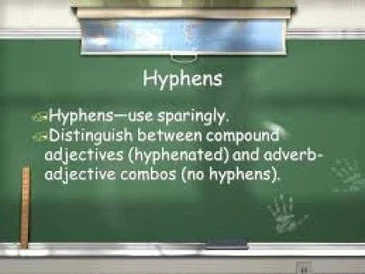I have been remiss, and my file of miscues in the mechanics of writing has grown thick. Newspapers, magazines, business communications – foibles such as “between … to” instead of “between … and,” “your” in the place of you’re, and inappropriate use of the comma are ubiquitous.
In today’s rendition of The Grammar Grouch, your dyspeptic scribe attacks the redundant hyphen connecting an ly adverb with an adjective modifying a noun. An example from the Palm Beach Post months ago: “She has never faced opposition for the seat that heads up the publicly-financed law firm that represents …” The reason for the hyphen is to show that “publicly” goes with “financed,” not “law firm.” In other words, it’s to show that this isn’t
a “publicly law firm.”
Say what? Of course it’s not a “publicly law firm.” That doesn’t make sense – which is the point. You can’t have a “publicly law firm,” so “publicly” has to go with “financed.” Ergo, the hyphen is unnecessary, a mark cluttering the text. In my early years as a newspaperman, I would puzzle over such situations, guessing as to whether to hyphenate. One day, logic prevailed, and I omitted the hyphen. Later, my position was validated by a couple of grammar experts who knew a heck of a lot more than I did.
Unhandy hyphen
Here’s another one, from an advertorial in … you guessed it, the Palm Beach Post. “Hand Rejuvenation is a highly-overlooked procedure when considering all signs of aging.” Now that makes sense: To look over something, you need to be up high. (That’s a joke.) The phrase “highly-overlooked” parallels “publicly-financed.” A “highly procedure” doesn’t make sense, so “highly” has to modify “overlooked.”
Let’s see if there’s another … Ah! Here’s a two-in-one special – two redundant hyphens in one hyphen-happy sentence. The unneeded little marks are in an ad by, of all things, a book store, involving, of all things, the Miami Book Fair International. “Shop small at your independently-minded, locally-based Books & Books …” Speaking of redundancies, an explanation of what’s wrong here shouldn’t be needed, but I’ll provide one, anyway. There can be no “independendly” or “locally” Books & Books; the two adverbs have to go with the adjectives they precede, “minded” and “based.”
Thus ends this overly-petty exercise. I mean …
Have to dash now. Goodnight.

